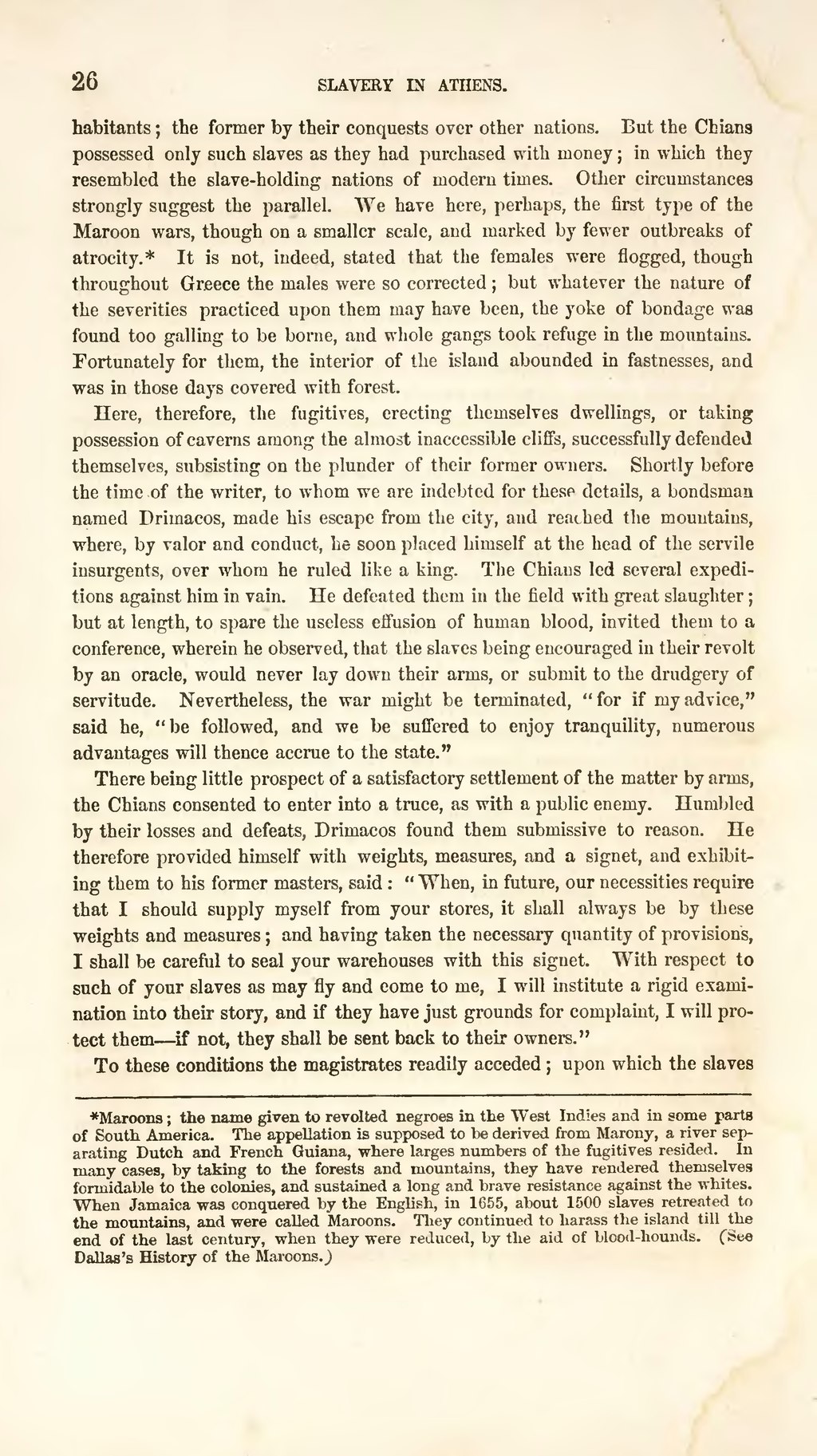habitants; the former by their conquests over other nations. But the Chians possessed only such slaves as they had purchased with money; in which they resembled the slave-holding nations of modern times. Other circumstances strongly suggest the parallel. We have here, perhaps, the first type of the Maroon wars, though on a smaller scale, and marked by fewer outbreaks of atrocity.[1]It is not, indeed, stated that the females were flogged, though throughout Greece the males were so corrected; but whatever the nature of the severities practiced upon them may have been, the yoke of bondage was found too galling to be borne, and whole gangs took refuge in the mountains. Fortunately for them, the interior of the island abounded in fastnesses, and was in those days covered with forest.
Here, therefore, the fugitives, erecting themselves dwellings, or taking possession of caverns among the almost inaccessible cliffs, successfully defended themselves, subsisting on the plunder of their former owners. Shortly before the time of the writer, to whom we are indebted for these details, a bondsman named Drimacos, made his escape from the city, and reached the mountains, where, by valor and conduct, he soon placed himself at the head of the servile insurgents, over whom he ruled like a king. The Chians led several expeditions against him in vain. He defeated them in the field with great slaughter; but at length, to spare the useless effusion of human blood, invited them to a conference, wherein he observed, that the slaves being encouraged in their revolt by an oracle, would never lay down their arms, or submit to the drudgery of servitude. Nevertheless, the war might be terminated, "for if my advice," said he, "be followed, and we be suffered to enjoy tranquility, numerous advantages will thence accrue to the state."
There being little prospect of a satisfactory settlement of the matter by arms, the Chians consented to enter into a truce, as with a public enemy. Humbled by their losses and defeats, Drimacos found them submissive to reason. He therefore provided himself with weights, measures, and a signet, and exhibiting them to his former masters, said:""When, in future, our necessities require that I should supply myself from your stores, it shall always be by these weights and measures; and having taken the necessary quantity of provision's, I shall be careful to seal your warehouses with this signet. With respect to such of your slaves as may fly and come to me, I will institute a rigid examination into their story, and if they have just grounds for complaint, I will protect them — if not, they shall be sent back to their owners."
To these conditions the magistrates readily acceded; upon which the slaves
- ↑ Maroons; the name given to revolted negroes in the West Indies and in some partB of South America. The appellation is supposed to be derived from Marony, a river separating Dutch and French Guiana, where larges numbers of the fugitives resided. In many cases, by taking to the forests and mountains, they have rendered themselves formidable to the colonies, and sustained a long and brave resistance against the whites. When Jamaica was conquered by the English, in 1655, about 1500 slaves retreated to the mountains, and were called Maroons. They continued to harass the island till the end of the last century, when they were reduced, by the aid of blood-hounds. (See Dallas's History of the Maroons.
